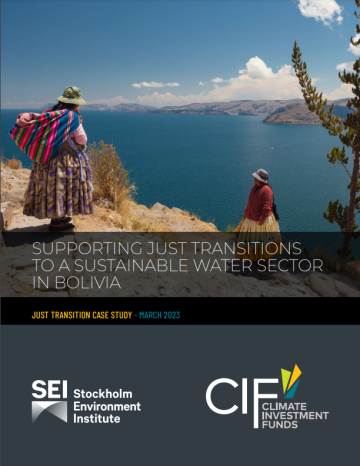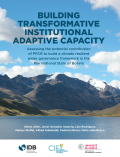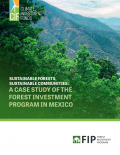
Water is vital to Bolivia’s national development and climate goals. Providing universal access to basic services, increasing food security and decarbonizing the energy sector will all require significant water resources. Yet, Bolivia is facing a water crisis, as it has limited water supplies, and demand keeps rising due to population growth and increased water use in agriculture, industry and energy.
This case study, part of a series exploring how Climate Investment Funds (CIF) investments have contributed to, or interacted with, efforts to ensure just transitions, examines Bolivia’s water resource management challenge across three dimensions: social inclusion, recognizing marginalized groups and engaging them in discussions and decision-making processes; the distributional impacts of climate action, and whether the benefits and costs associated with transitions are allocated fairly; and transformational intent, the degree to which policies and measures transform the norms and structures that have created social and economic inequalities.
The study also highlights significant conflicts and disparities in the current allocation of water that the transition will need to address.


